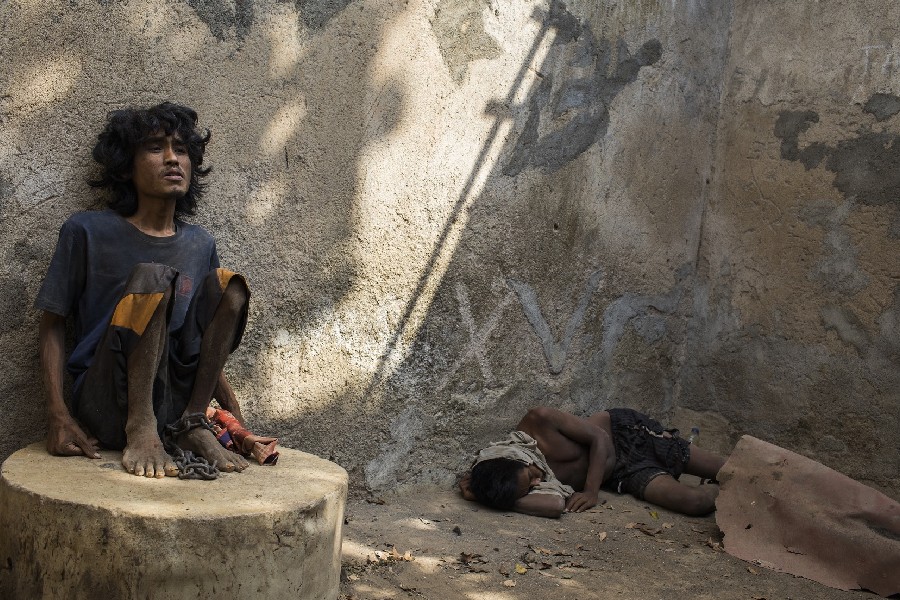
Published :
Updated :

Hundreds of thousands of people with mental health conditions are shackled around the world, Human Rights Watch (HRW) said in a report.
Men, women, and children, some as young as 10, are chained or locked in confined spaces for weeks, months, and even years, in about 60 countries across Asia, Africa, Europe, the Middle East, and the Americas, according to the report released on Tuesday.
The 56-page report titled ‘Living in Chains: Shackling of People with Psychosocial Disabilities Worldwide,’ examined how people with mental health conditions are often shackled by families in their own homes or in overcrowded and unsanitary institutions, against their will, due to widespread stigma and a lack of mental health services.
Many are forced to eat, sleep, urinate, and defecate in the same tiny area. In state-run or private institutions, as well as traditional or religious healing centres, they are often forced to fast, take medications or herbal concoctions, and face physical and sexual violence.
The report includes field research and testimonies from Afghanistan, Burkina Faso, Cambodia, China, Ghana, Indonesia, Kenya, Liberia, Mexico, Mozambique, Nigeria, Sierra Leone, Palestine, the self-declared independent state of Somaliland, South Sudan, and Yemen.
“Shackling people with mental health conditions is a widespread brutal practice that is an open secret in many communities,” said Kriti Sharma, senior disability rights researcher at Human Rights Watch and author of the report. “People can spend years chained to a tree, locked in a cage or sheep shed because families struggle to cope and governments fail to provide adequate mental health services.”
There are no data or coordinated international or regional efforts to eradicate shackling.
In response, Human Rights Watch has been working with mental health advocates with lived experience, and human rights and anti-torture organisations around the world to launch a global #BreakTheChains campaign to end shackling of people with mental health conditions, ahead of World Mental Health Day on October 10.
Human Rights Watch interviewed over 350 people with psychosocial disabilities, including children, and 430 family members, staff working in institutions, mental health professionals, faith healers, government officials, and disability rights advocates.
Based on a study of 110 countries, Human Rights Watch found evidence of shackling of people with mental health conditions across age groups, ethnicities, religions, socioeconomic strata, and urban and rural areas in about 60 countries.
Globally, an estimated 792 million people, or 1 in 10, including 1 in 5 children, have a mental health condition. Yet governments spend less than two per cent of their health budgets on mental health.
More than two-thirds of countries do not reimburse people for mental health services in national health insurance systems.


 For all latest news, follow The Financial Express Google News channel.
For all latest news, follow The Financial Express Google News channel.